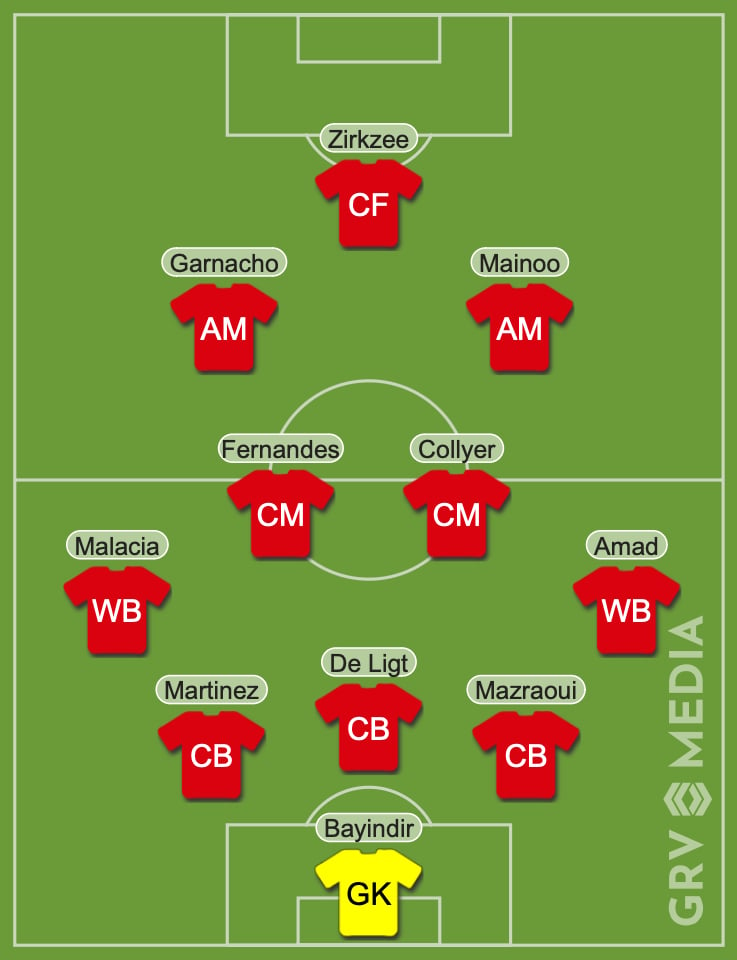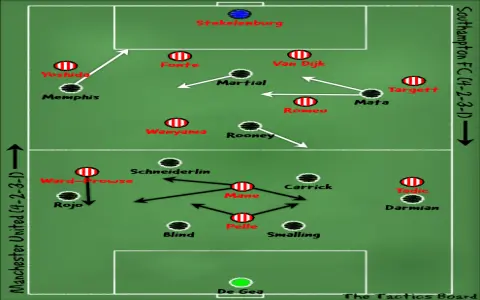Yesterday I was really eager to see the starting lineup for the FCSB vs. Manchester United match. Not because the game was particularly important, but because I wanted to know: Who exactly did Manchester United put on the field?
I sat down at my computer first thing in the morning, coffee already brewed, just waiting for the official lineup announcement. And what happened? I waited forever with no updates.
I started frantically refreshing pages, opening over a dozen tabs:
- Manchester United’s official site
- FCSB’s official site (had to switch to English)
- Several Romanian sports news sites
- Fan forums and score apps
I clicked each one hoping for updates. But all I found were ads, old news, or pages still talking about last year’s game—nothing relevant.
I searched a bunch of keywords: “FCSB vs Manchester United who’s playing,” “Manchester United starting lineup,” “today’s match lineup”… but all that came up were betting sites, prediction threads, and people writing “I think they’ll play so-and-so”—but that’s not the real lineup.

It was so frustrating.
After waiting nearly two hours, I finally saw the officially announced lineup on Manchester United’s website.
But when I looked, I froze:
Bruno Fernandes wasn’t there, Rashford wasn’t there, B Fernandes, Maguire, Casemiro—none of them showed up.
The whole team looked like a hodgepodge of youth squad players and reserves. Most of the names were unfamiliar to me, like they’d been hastily pulled from the second team.
Looking at FCSB’s lineup, they fielded their starters. While these players aren’t well-known internationally, they’re regular faces in Romanian domestic competitions.
I quickly grabbed a notebook to jot down the names, thinking as I wrote:
Is this guy a midfielder?
Is the guy wearing number 23 a left-back or a winger?
Why do different websites list the same player’s position differently?
Some say “4-3-3,” others “4-2-3-1.” They look similar, but the actual formations are worlds apart. I had to guess, relying on past match experience to slowly figure out what each player was doing on the field.
Seeing this lineup, it became clear to me: Manchester United simply didn’t take this match seriously.
They left all their starters back in England, filling the bench entirely with young players and those who rarely see game time. Their goal was obviously to rest key players, avoid injuries, and prepare for more important league and cup competitions.
FCSB, however, was different. They fielded their strongest possible lineup, clearly intent on winning. For them, matches against big clubs aren’t just practice—they’re opportunities to showcase themselves.
This made me realize:
Teams approach matches with vastly different attitudes.
For elite clubs, some games are mere “formalities.” Winning is nice, but losing isn’t a big deal;
But for smaller teams, every match is an opportunity—a chance to earn points, gain experience, or even change their destiny.
This time, I wasted too much time checking lineups. Jumping between different websites, seeing conflicting info, just made me more confused.
Next time, I won’t repeat this. My plan is:
- Stick to official sources: Like Manchester United’s official site or UEFA’s website—these have the most accurate info.
- Check closer to kickoff: Lineups usually drop an hour before the match, so no need to camp out early.
- Use just one live-score app: Apps like “Zhibo8” or “Dongqiudi” update fast, centralize info, and show formation diagrams.
No more opening multiple tabs or scrolling through fan arguments in comment sections. Saves time and spares me the frustration.
Though this FCSB vs. Manchester United game isn’t a high-stakes clash, the lineup choices tell a story.
For example:
- Manchester United resting key players suggests they have more important matches ahead;
- FCSB taking it seriously indicates they want to test their level against a strong opponent;
- Young players getting playing time might mean the club is evaluating new talent.
None of this is revealed by the final score—it’s uncovered by observing who takes the field.
Sometimes, even before the ball is kicked, you can sense where the weight of the game lies.
Honestly, few will remember this match.
The score won’t matter much, and goals rarely trend online.
But for me as a fan, it taught me one thing:
Not every game needs to be won, and not every player needs to be famous.
Some take the field to gain experience, some teams play to survive, and some clubs prepare for bigger goals.
So next time you see a powerhouse fielding unfamiliar faces, don’t rush to call it “disrespectful.”
They likely have their reasons.
And those young players you don’t recognize? They might just become starters someday.
That’s football for you—
it has its glamorous side, and its quiet, hardworking side.
I just spent a little extra time looking closely at a roster,
but what I saw wasn’t just 11 names—
it was the entire team’s strategy and choices behind them.

